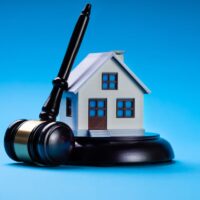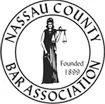New York Homestead Exemption

Chapter 7 bankruptcy is a lifeline for people drowning in debt or struggling to keep up with all their monthly bills and expenses. When people hear Chapter 7 referred to as “liquidation,” however, they start to worry that they will have to sell off all of their property to pay their debts as part of the bankruptcy process. This rarely happens, however. Both New York and federal bankruptcy laws provide numerous exemptions from liquidation that allow consumers to protect all or mostly all of their property from being sold. One of the most important exemptions in New York is the homestead exemption. Read on to learn more about this significant benefit to homeowners, and if you are struggling with overwhelming debt, reach out to an experienced and successful New York bankruptcy lawyer at the Law Office of Taran M. Provost, PLLC to discuss your needs and find out how we can help.
The New York Homestead Exemption Explained
Almost every state (New Jersey and Pennsylvania are exceptions) has a homestead exemption, allowing homeowners to keep their primary residence safe from creditors. The amount of the exemption varies by state, but what it does is protect the equity in your home up to the applicable dollar amount defined in the law. Whatever amount is protected under the exemption, creditors cannot come after it, even if you owe them money.
In many states, you have to file for the exemption with the County Recorder to take advantage of it, but the exemption is automatic in New York, so you don’t have to take any steps to gain this protection; your homestead is protected. The homestead exemption in New York applies to your primary residence or real property, whether it is a home, a mobile home, a condo or a co-op.
The amount of the New York homestead exemption varies according to which county the property is located in. Currently, the exemption amounts are as follows:
- $179,975 in Bronx, Kings, Nassau, New York, Putnam, Queens, Richmond, Rockland, Suffolk, and Westchester counties
- $149,975 in Albany, Columbia, Dutchess, Orange, Saratoga, and Ulster counties
- $89,975 in all other counties
The amount is adjusted every three years, and the last adjustment was made in April 2021, so the figures listed above are current through April 1, 2024.
Importantly, the figures above can be doubled for spouses who own the home together and are jointly filing for bankruptcy. This aspect of the homestead exemption makes it especially useful and can protect a significant amount of equity in the home.
The Homestead Exemption and Bankruptcy
In a Chapter 7 bankruptcy, the trustee overseeing the case can in theory take the filer’s nonexempt property and sell it (liquidate it), using the proceeds of the sale to pay off creditors before the court discharges the filer’s remaining unsecured debts. A host of exemptions allow debtors to protect their valuable property, however, so with the help of a skilled bankruptcy attorney, many filers can obtain a “no-asset” bankruptcy where all of their property is exempt from sale.
In the case of a home, if the trustee were to take the house and sell it, the bank would get what it is owed on the mortgage, so the trustee could only use the homeowner’s equity in the home that is not covered by the homestead exemption. If the exemption covers all of the equity, the trustee can’t sell the house. Even if not all but most of the equity is covered by the exemption, the trustee might consider it is not worth the hassle to sell the house for only a small return.
In a Chapter 13 bankruptcy, the trustee does not sell any of the debtor’s property, but filers are required to pay off a portion of their debts over a three- or five-year repayment plan. The homestead exemption cuts down on the amount the filer will have to pay. Only the amount of nonexempt equity goes into the repayment plan and is paid to creditors; homeowners keep all the equity in their home covered by the homestead exemption.
Bankruptcy filers in New York can choose to use either the New York or federal bankruptcy exemptions. Each set has a homestead exemption but with different amounts (the federal homestead exemption is currently $27,900). As a filer, you have to choose either the New York or federal set of exemptions and cannot mix and match; your attorney will advise you on the best set of exemptions that meet your particular circumstances.
To use the New York homestead exemption in your bankruptcy case, you must have been a resident of New York for 730 days before filing, and you need to have bought the property and owned it for at least 1,215 days before filing. The way the property is held and titled (what type of tenancy) can impact whether the trustee can take the property or not, so having an attorney who is experienced in both bankruptcy and real estate law in New York is valuable to receiving the best advice.
If you are struggling with debt in Orange, Ulster, or Dutchess Counties or anywhere in the Hudson Valley, contact the experienced and professional New York bankruptcy legal team at the Law Office of Taran M. Provost, PLLC for a free consultation on your case by calling 845-733-2720.



